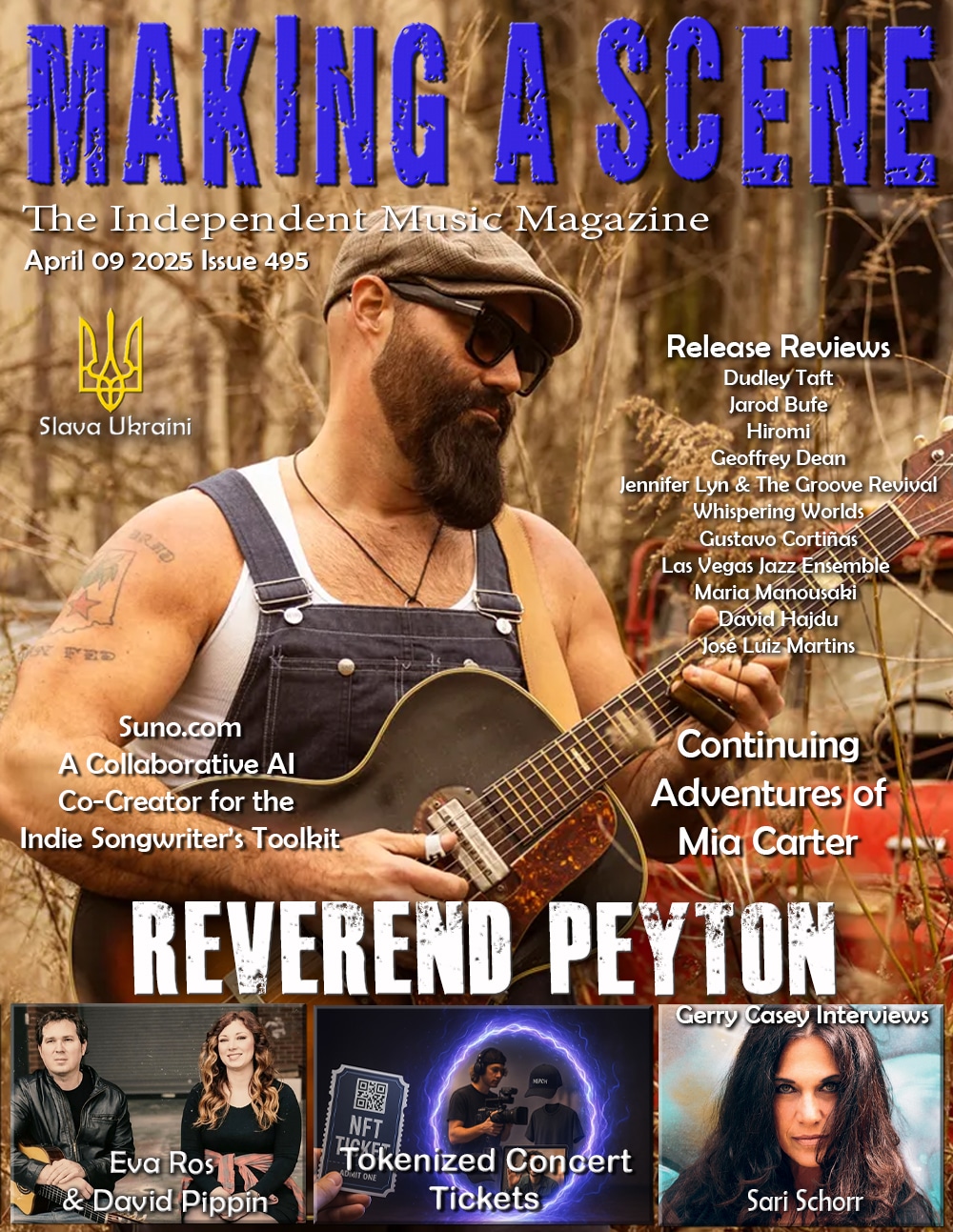Jennifer Wharton’s Bonegasm Grit & Grace
 Jennifer Wharton’s Bonegasm
Jennifer Wharton’s Bonegasm
Grit & Grace
Sunnyside
The inside album photo reveals one female amongst seven males, symbolic in a sense of the odds that a female faces in the music world, particularly on the trombone. Yet, Jennifer Wharton is the leader of this ensemble, Bonegasm, and she plays bass trombone to boot. Grit & Grace is the ensemble’s third album and the first to feature Wharton originals as well as (to fortify those odds) compositions by female composers. If you’ve gleaned many of the big band albums we have reviewed in this space, you’ve likely seen Wharton, who bears a classical background, as a member of the Alan Ferber Big Band and Generation Gap Jazz Orchestra. She also graces Remy LeBoeuf’s Assembly of Shadows, Darcy James Argue’s Secret Society, and the Terraza Big Band among the many large ensembles or Broadway pits. As you know, there are other multi-trombone-based units, notably Bonerama and Bones Apart, but Bonegasm features acclaimed trombonists and bandleaders Ferber and Wharton’s husband, John Fedchock as well as Nate Mayland to form a foursome of trombones on the front line. Pianist Michael Eckroth, bassist Evan Gregor, drummer Don Peretz, and on five selections percussionist Samuel Torres, comprise the ensemble.
The album commences with her own “Be Normal,” arranged by Fedchock. It’s meant as advice to those, including Wharton, who have a constant urge to be productive and hyperactive. The soloists are Fedchock, Eckroth, and Peretz and the tune is buoyant, with nary a trace of any section or solo connoting slowing down. Hmmm. You’ll hear Wharton adding a layer of sediment to the low end. That same distinctly low sound begins the next piece, “in Our Darkest Hour,” penned by the Australian composer/conductor Vanessa Perica, written to describe 2020 in the U.S., marked by the pandemic and social justice protests. About midway through Ferber extends the somber melody. It would be challenging to find a better soundtrack for that dark period. Wharton arranged the highly textured piece from Dick Oatts, “Anita,” that was inspired by the death of a close friend’s daughter. It’s a feature for Mayland who soars melodically, gaining support from Eckroth, who takes a glistening, rather joyful turn in the vein of celebrating Anita’s life. ‘Mama’s Alright” is Wharton’s original in tribute to the vastly underrecognized female trombonist Melba Liston who played with Randy Weston, Dizzy Gillespie, and Count Basie among others but released only one album of her own, which was heavily African tinged, thus the contributions from percussionist Torres. Bassist Gregor, Fedchock, and Wharton all weigh in with individual statements.
“Norhala” is from the Grammy-nominated composer Miho Hazama who just released her own brilliant Beyond Orbits, covered here just two weeks ago. Hazama’s knowledge of fantasy and sci-fi yields this mysterious character from A. Merritt’s 1920 novel The Metal Monster. The character can control lightning and bring metal objects to life as Mayland does figuratively in his solo, which ignites a battle scene as the other frontliners join in. Colombian-born pianist Carolina Calvache composed “Uncertainty,” a much quieter, layered, textured piece understandably rife with tension as communicated in the solos of Fedchock and Gregor. Fellow trombonist and vocalist Natalie Cressman penned “Menina Sozinha,” (girl on her own) is a kindred spirit who overcame those proverbial odds that are stacked against female musicians. Wharton embraces the ode to perseverance in sprightly fashion before yielding to Eckroth, who in turn, bounces all over his keys.
“Virtual Reality” is the first piece Wharton ever composed, here given new life with heavy doses of tension and relief as expressed in both her solo and Ferber’s. “La Bruja” is another melancholy offering, arranged by Wharton and punctuated Eckroth and Fedchock, that interprets the Mexican folk song performed by Salma Hayek in her biopic of painter Frida Kahlo. Australian-born trumpeter Nadje Noordhuis, noted mostly for her masterful command of ballads, has a surprising rousing number, “Coop’s Condiments” that closes the album with the septet supporting Wharton’s only vocal extolling the virtues of titular Creole restaurant in New Orleans. Her bandmates join in on the chorus with individual spots from Gregor, Nayland, and Ferber, giving it a bit of NOLA flavor along the way. After all, what city is more associated with the trombone?
True to its title, Grit & Grace moves through several moods, tempos, and textures but attains a balance that few albums do, especially considering its frontloaded low end.
- Jim Hynes
Buy Us a Cup of Coffee!
Join the movement in supporting Making a Scene, the premier independent resource for both emerging musicians and the dedicated fans who champion them.
We showcase this vibrant community that celebrates the raw talent and creative spirit driving the music industry forward. From insightful articles and in-depth interviews to exclusive content and insider tips, Making a Scene empowers artists to thrive and fans to discover their next favorite sound.
Together, let’s amplify the voices of independent musicians and forge unforgettable connections through the power of music
Make a one-time donation
Make a monthly donation
Make a yearly donation
Buy us a cup of Coffee!
Or enter a custom amount
Your contribution is appreciated.
Your contribution is appreciated.
Your contribution is appreciated.
DonateDonate monthlyDonate yearlyYou can donate directly through Paypal!
Subscribe to Our Newsletter
Discover more from Making A Scene!
Subscribe to get the latest posts sent to your email.














































